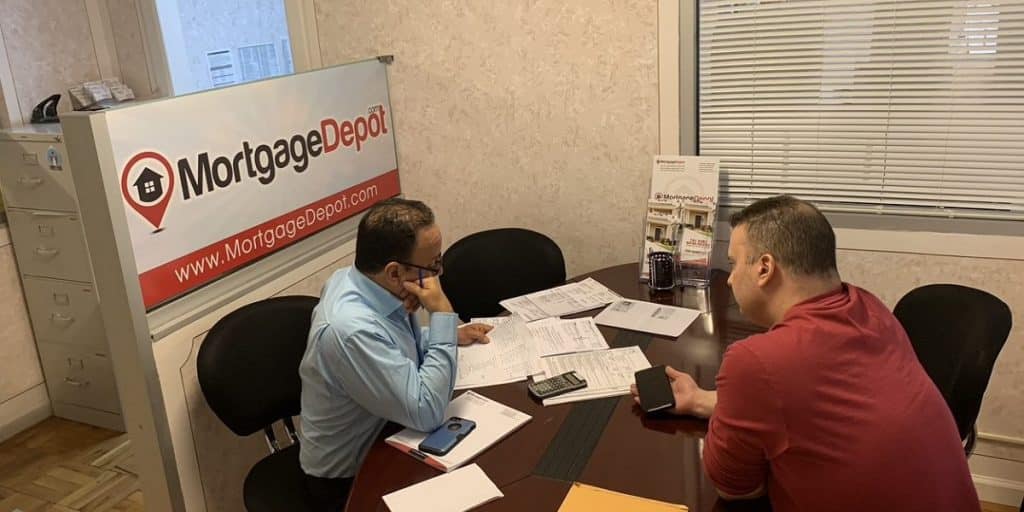
In this uncharted economic territory current homeowners and first time homebuyers have lots of questions. For borrowers (and potential borrowers) in searching for answers, we’re answering your most frequently asked mortgage questions—along with the all-important accurate answers.
Should I refinance my mortgage now?
Mortgage rates are historically low right now, and if you secured a mortgage in early 2019, 2018, or 2017, you’re likely a solid candidate for a refinance loan. But be aware, a refinance replaces the original loan with a new one and you may have to change from your current lender. First, determine if you can save money by refinancing by considering its costs. To arrive at a well-informed answer, you’ll need to determine the following:
- Your location
- Original loan amount
- Original loan terms and rate
- Original loan origination date
- The current balance on your mortgage
- Whether or not you want to take out some cash
- New loan terms and rates
- Refinancing costs
- The amount of the new loan you want
It’s also vital that you avoid these key-refinancing mistakes:
- Assuming that a federal rate of 0% means you can get a 0% mortgage rate
- Jumping on the refinancing trend too late
- Forgetting about the fees associated with refinancing
- Refinancing too much equity out of your home in a time of uncertainty
- Expecting to lock in your lender’s quoted rates and fees ASAP
- Shopping for the right loan for too long
What is a cash-out refinance?
A cash-out refinance is a way to refinance a mortgage and to “withdraw” some the equity in your home as cash. This is a strategy that is often used for home improvements or to consolidate and pay off consumer debt. It differs from the main goal of a traditional refinance, which is to lower your monthly payment.
With a cash-out refinance, you’ll get money back from the bank. The loan usually has a fixed rate, unlike a home equity line of credit (HELOC), which often has a variable rate. Also, a cash-out refinance replaces the first mortgage and doesn’t add a second mortgage like a home equity line of credit. “If you have been paying down your mortgage in timely manner and you’ve built up enough equity, it’s a good time to tap into it,” says Sathi Roy, head of refinance at Better.com. “If someone is a little strapped for cash right now, it’s a perfect option.”
What is Mortgage forbearance?
“Forbearance [is a program] that would allow a temporary period for a borrower to not have to make a contractual monthly payment amount,” says Sara Singhas, director of loan administration for the Mortgage Bankers Association. “You can either pay a lesser amount of your mortgage—or not pay anything at all—for a period of time.”
At the end of the forbearance period, the amount of the missed payments is due, often in a lump sum. However, lenders do sometimes allow payment plans. Forbearance is for a short and specified term typically 90 days or more at the lender’s discretion, and does not change the terms of your loan. During a forbearance period, lenders will not charge late fees or penalties, report missed payments to the credit bureaus, or begin to initiate foreclosure proceedings.
And note that lenders use the term “forbearance” interchangeably with “mortgage deferment.”
Despite what its called, don’t let it discourage you from contacting your lender and asking for help. Lenders will not automatically offer forbearance if you miss a payment. A plan must be in place if you think you can’t make your monthly payment. A solid payment history helps in forbearance cases, but in these unprecedented times, many lenders are rapidly changing their rules and regulations.
“The important thing to get across to folks is, if you need help, talk to a servicer because there are absolutely ways that borrowers can get assistance with paying their mortgage payments,” says Singhas.
What is a home modification loan, and how do I get one?
A loan modification changes the original terms of a mortgage loan. It varies from a refinance loan in that it does not pay off the original loan and replace it with a new one. Instead, it simply changes the conditions of the current existing loan.
“It is usually used when a homeowner has unexpected financial hardship that makes it difficult to make their mortgage payment,” Quicken Loans and the mortgage platform Rocket Mortgage’s Bill Banfield, executive vice president of capital markets says. “Under normal circumstances, a modification of a mortgage results in an adverse impact to a client’s credit history and credit score.”
Loan modifications can include an interest rate change, an extension in the payment schedule, a different type of loan altogether, or a combination of these levers.
“A homeowner can only get a loan modification through their current mortgage servicer, because they must consent to the terms,” Banfield explains. “Every servicer has its own standards for loan modification, and homeowners should contact their servicer to see if they qualify for a loan modification.”
Contact one of our loan consultants to learn more about this program.
Have questions or need help?
Call us now at 800-220-LOAN
Request a call back or email us your questions!







